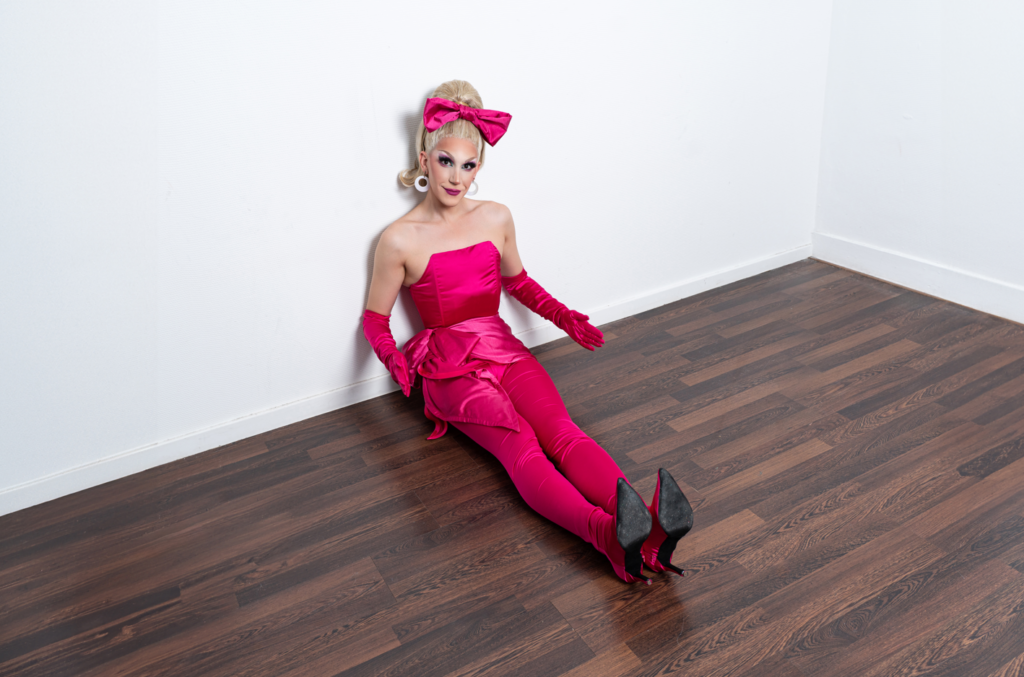Edna Sorgelsen was called the robbed queen of Drag Race Belgique this year and has gained a lot of popularity. Let’s see where she’s at right now.
Tell us a bit about yourself. What has been your journey?
I grew up in the suburbs of Liège and moved to Brussels at the age of 21 to finish my studies. I wasn’t really involved in the Liège LGBTQIA+ scene. It took me a long time to really accept and “live” my homosexuality, and I had a lot of preconceived ideas about this sphere I didn’t know. Once in Brussels, I got together with someone who worked at Maman. The bar was looking for students, and I needed money. That’s how I discovered Brussels queer nightlife. It was a lot of fun, but there was no question of becoming a drag queen. At first, it was just the pleasure of working and going out at the same time (being a bartender also meant taking part in the party). There was a lot in it for me. I liked watching the girls do their make-up, but I wasn’t planning to become part of the clique. Once a year, Chez Maman organizes the famous “Massacre evening”, a sort of big, messy teambuilding where the roles are changed: the queens become bartenders and the bartenders mock the girls. I didn’t like it. I saw Gautier (myself) wearing a wig, looking feminine in a way I wasn’t, and walking clumsily in heels. I was then introduced to RuPaul’s Drag Race (season 3, I think). I discovered the theatricality, humor, and extra-glam that drag allowed. I thought it would be fun to learn how to do my own make-up for the next Massacre party (I love a challenge). I worked as a barmaid for a few nights to get used to the physicality of the character, and that’s how Edna was born. One project followed another: my duet with Mademoiselle Boop on Youtube, the Démence Cruise, LGBTQIA+ events, then the creation of the Cabaret Mademoiselle, the Boop and Edna podcast, The Agenda, the “Unique en son Genre” book readings for children, the FIDAE at ULB… So many projects that brought me into contact with our community, and much more over the past ten years.
How do you feel about your experience on Drag Race Belgique? How do you feel about being considered the robbed queen of the season?
The most traumatic experience of my life (laughter). It’s a very demanding exercise, requiring you to transform your drag into a war machine and develop a brand around your drag. When I saw the casting ad, I thought it was a joke. How could our little Belgium compete with this gigantic franchise, with its hyperactive community of fans, dissecting and comparing the smallest details. I took part, trying to be as natural as possible. People saying I’m a “robbed queen” makes me happy. It means people appreciated my participation and that my time had not come. Indeed my costume wasn’t as polished as I would have liked. The theme was “Festival”, and I immediately thought of the hippie movement and Woodstock. If I had to do it all over again, I’d still have created a similar look, but I’d have dropped the pants to make a tube. The jury seems to prefer simple shapes rather than taking messy risks. Anyway, that’s the game. Of course, I could see myself making it to the finale, and it took me a long time to mourn my early elimination. Even now, I have a stomachache when I think about it. But Drag Race is just one (big) parenthesis in a drag life. It’s about becoming a pro in your drag. What matters is what you do after.
What are your current or future projects after Drag Race Belgique?
I like to say that my drag is both a personal pleasure and a reason for people to get together. When I do viewing parties, it’s not just to show off my wardrobe, it is also a reason to get together in one place and share a common experience (a show, a game, a film). With Drag Race, I had the ambition to make TV and create a show. I’m lucky enough to have been able to launch a podcast produced by RTBF (I imagine they were full of remorse, laughter), “Amour Drag et Courrier”, where I’d go through the news and give an opinion on everything. It was mostly a discussion between friends, with Mademoiselle Boop and then Athena Sorgelikis. I’ll be joining the team of columnists on Tipik’s Culture Club show for their new season from mid-September. I also had the honor of presenting the Miss Bear election in October. I continue to perform at Cabaret Mademoiselle, The Agenda. Edna also allows me to travel and meet other queer circles (Lyon, Lille, Paris…).
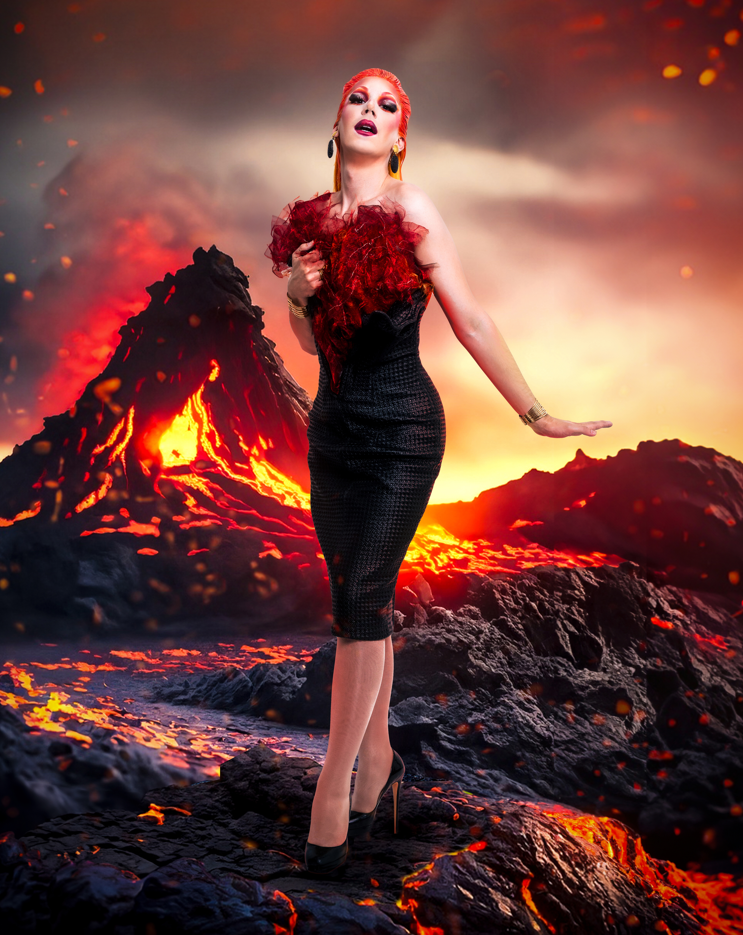
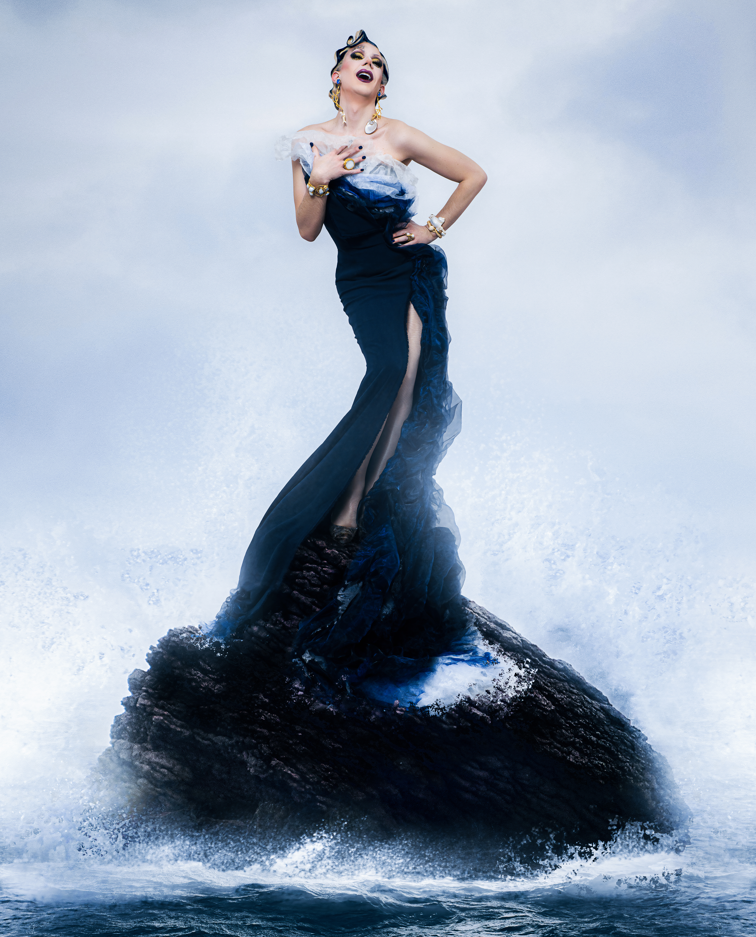
What does being a part of the Brussels queer community mean to you?
While I felt very much a loner as a teenager, I’m proud to have been part of a community for over 10 years, and to be one of many people to make it colourful. I see the community evolving, becoming more inclusive and diverse. I also see our values being better accepted by the rest of society. I feel things are evolving for the better, that there is more and more synergy and acceptance, within our community and elsewhere. As we become “nationally known”, more people are discovering our sphere.
What are your queer influences?
My biggest influence is the Scissor Sisters band. I discovered them on TV when I was a teenager and their music has always been a source of strong feelings. I love the music of Roisin Murphy, Gossip / Beth Ditto and movies of Pedro Almodovar and John Waters.
What Brussels queer initiatives are you fond of?
Without any hesitation, the initiative I am the most excited about is when a group of young students want to launch an artistic, cultural, festive, and inclusive project on their campus. This is the Festival Inclusif des Arts Engagés (FIDAE) of the Université Libre de Bruxelles, of which I am honored to be the sponsor since 2021. I’m passionate about the concept of the Grands Carmes, the first LGBTQIA+ community center, a federating structure, and a collective of three associations to join forces. I like to see things open up and put people in touch with each other, like the open-air events taking place on Rue Marché au Charbon. That’s how we keep the community alive. And, of course, The Agenda and Cabaret Mademoiselle, for the reasons you can imagine (no, I’m not just saying that because they pay me, laughter).
Picture credits: Lorenzo Frison
You may also like
-
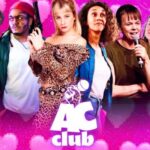
Laugh, Love, and Friendship: Atout Comedy Club Brings Queer Joy to Brussels
Forget Valentine’s Day clichés—this year, Brussels’ queer comedy scene is celebrating friendship instead of romance. On Friday, February
-
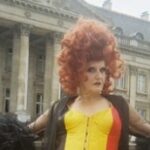
Motherland: A Chaotic Cabaret That Mirrors Belgium Itself
What if Belgium were a drag show?That’s the question at the heart of Mère Patrie, a
-
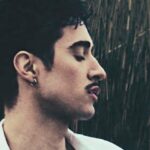
Adriano Selva: The Soulful Pop Dreamer Who Feels It All
In a world that often rewards detachment, Adriano Selva chooses to stand beautifully exposed. His
-
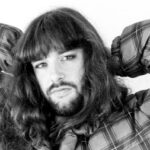
Splinters of Joy: Lylybeth Merle’s Eco‑Queer Fairy Tale of Transition and Healing
Lylybeth Merle’s new book Échardes (“Splinters”), out in February 2026, is a tender, defiant journey through gender,
-

Bad Bunny Makes Grammys History — and Turns the Stage Into a Political Movement
It was a night that rewrote the rules of pop culture — in Spanish. At

